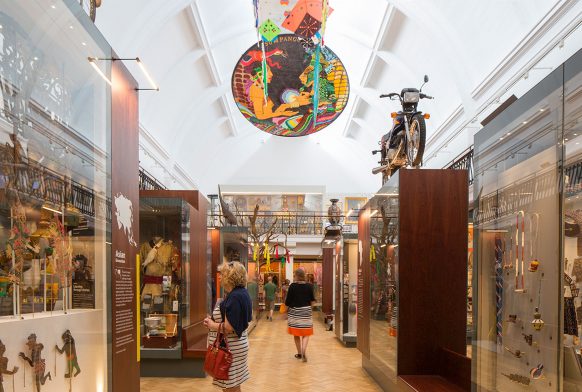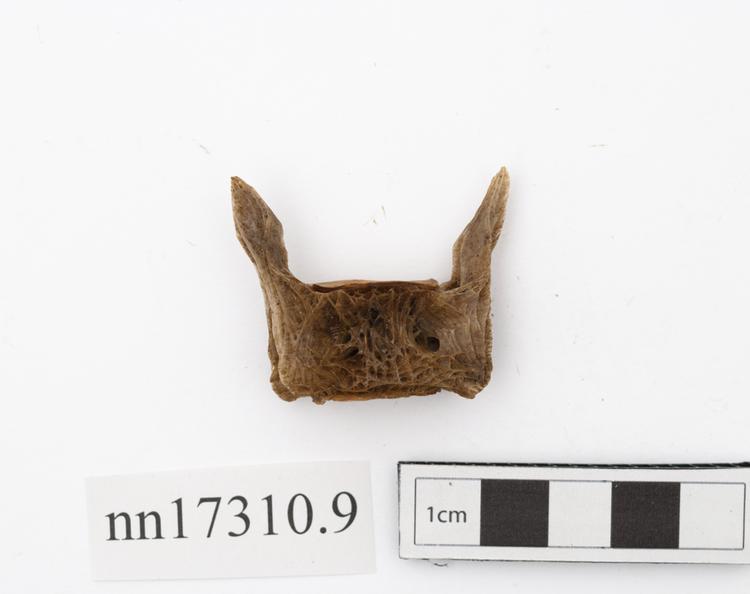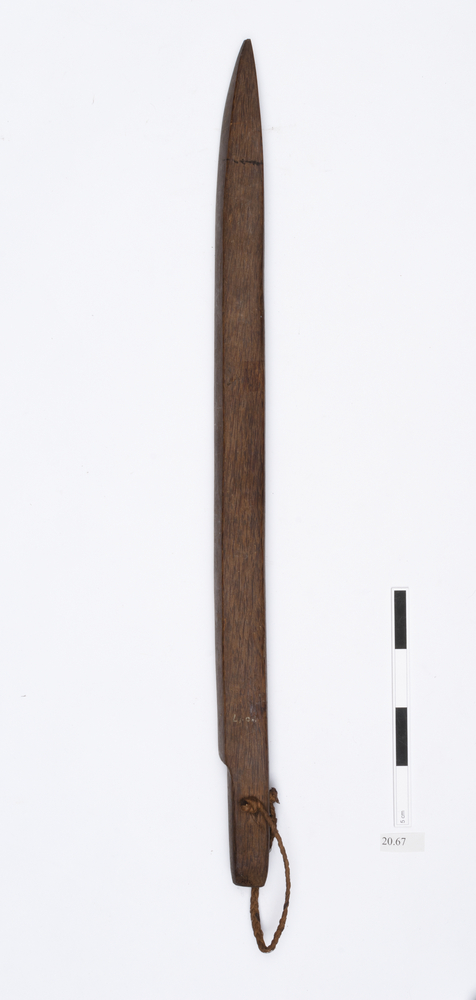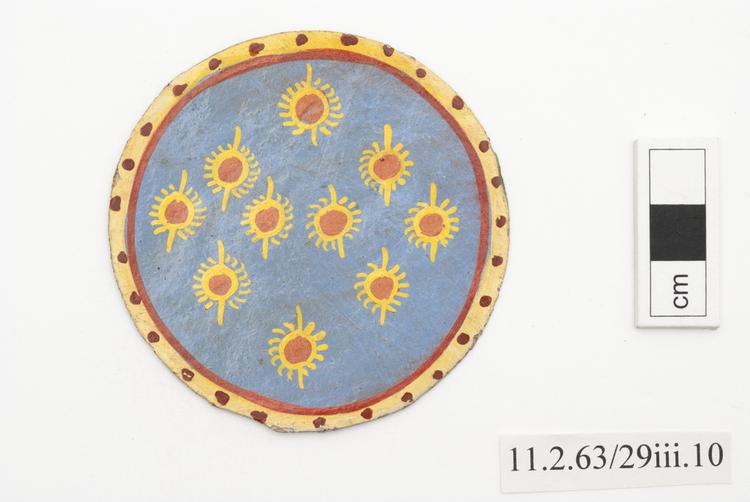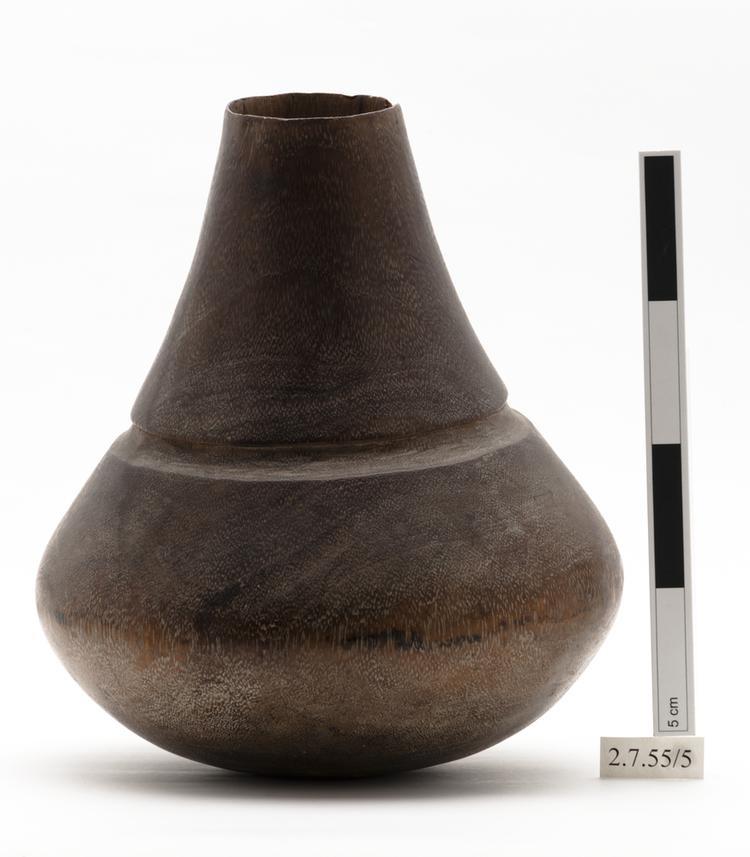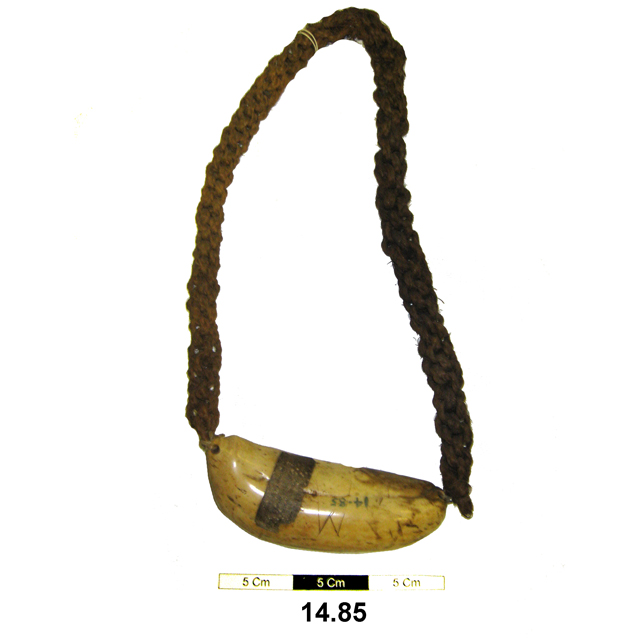
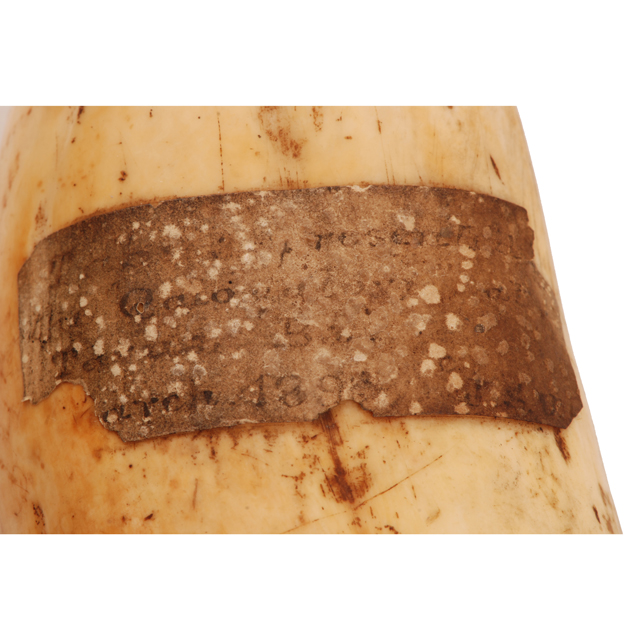
Tabua, ceremonial currency made from a smoked sperm whale tooth with sinnet rope.
Ceremonial Valuable, Tabua, Fiji, Western Polynesia For the people of Fiji, tabua – the pierced, strung and smoked teeth of the sperm whale (Physeter catodon) were traditionally a commodity of the highest value and ceremonial importance, and they continue to play that role in the modern ceremonial life of Fiji. Tabua have been presented for centuries as powerful symbols of political alliance, trust, love, and compensation for wrongs done. Traditionally, there were some crimes for which compensation could only be paid in whale teeth. It has long been thought that the practice of suspending whale teeth for use as ceremonial valuables was unique to Fiji, but it has recently been shown that whale teeth were used similarly in parts of the Solomon Islands also, connecting the Fijian use of tabua with the large, hard, white shell rings used as ceremonial currency in the Solomon Islands. This particular tabua was presented to Mr John Symonds Udal in 1893 by the chief of Tavua district, Ba province, in the northwestern part of Viti Levu, Fiji’s largest island. Fijian chiefs often presented several whales’ teeth to a visiting chief or ambassador; this ceremonial presentation of whales’ teeth was termed a qaloqalovi – a gift that sealed peaceful alliance between the host and the visiting representative of a foreign chiefdom (matanitu). Udal was a Dorset man by birth, but served as Attorney General of Fiji from 1890-1900, as well as captain of the Fijian cricket team on its international tour in 1895. Ivory, coconut fibre. Mid-to-Late 19th Century.



